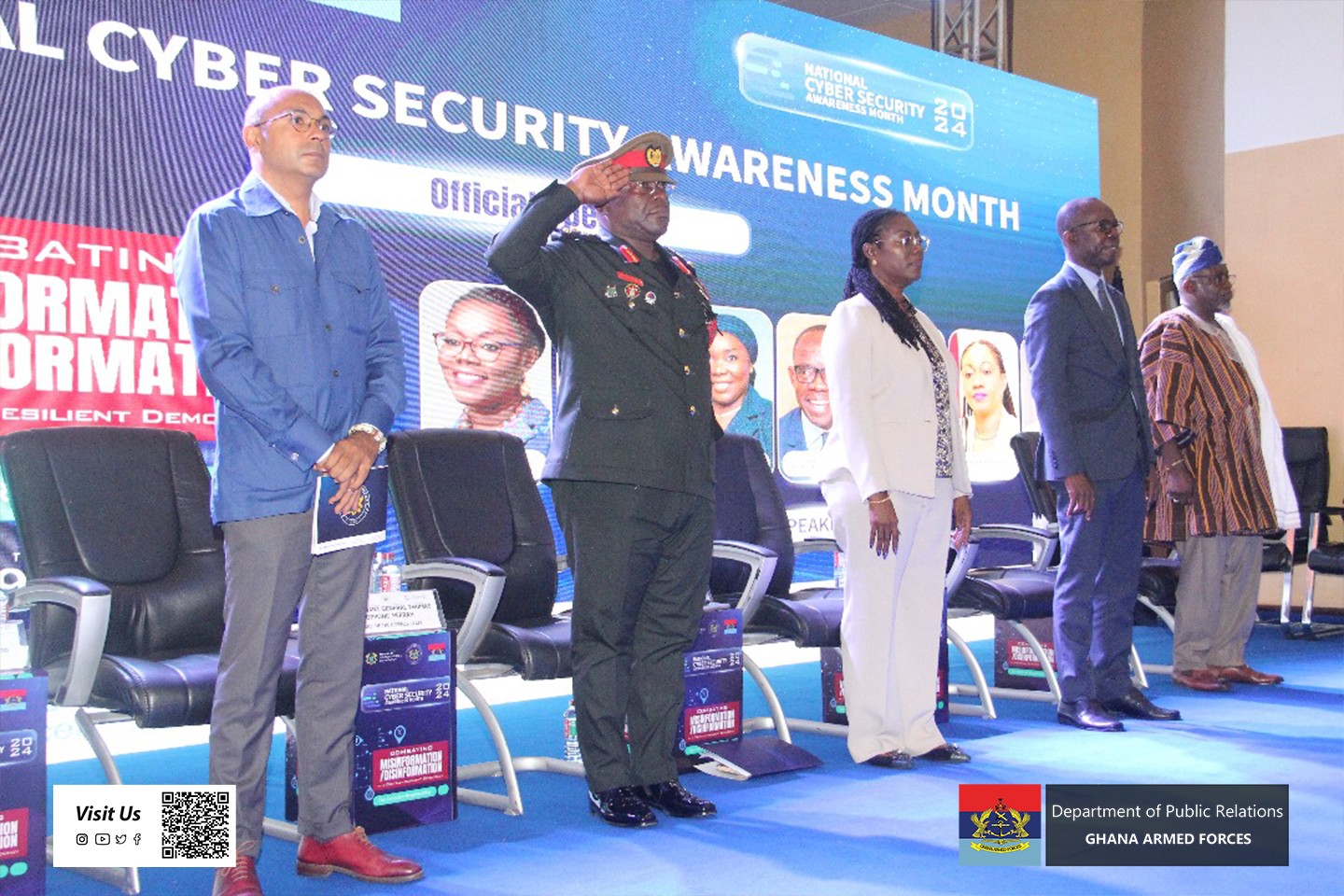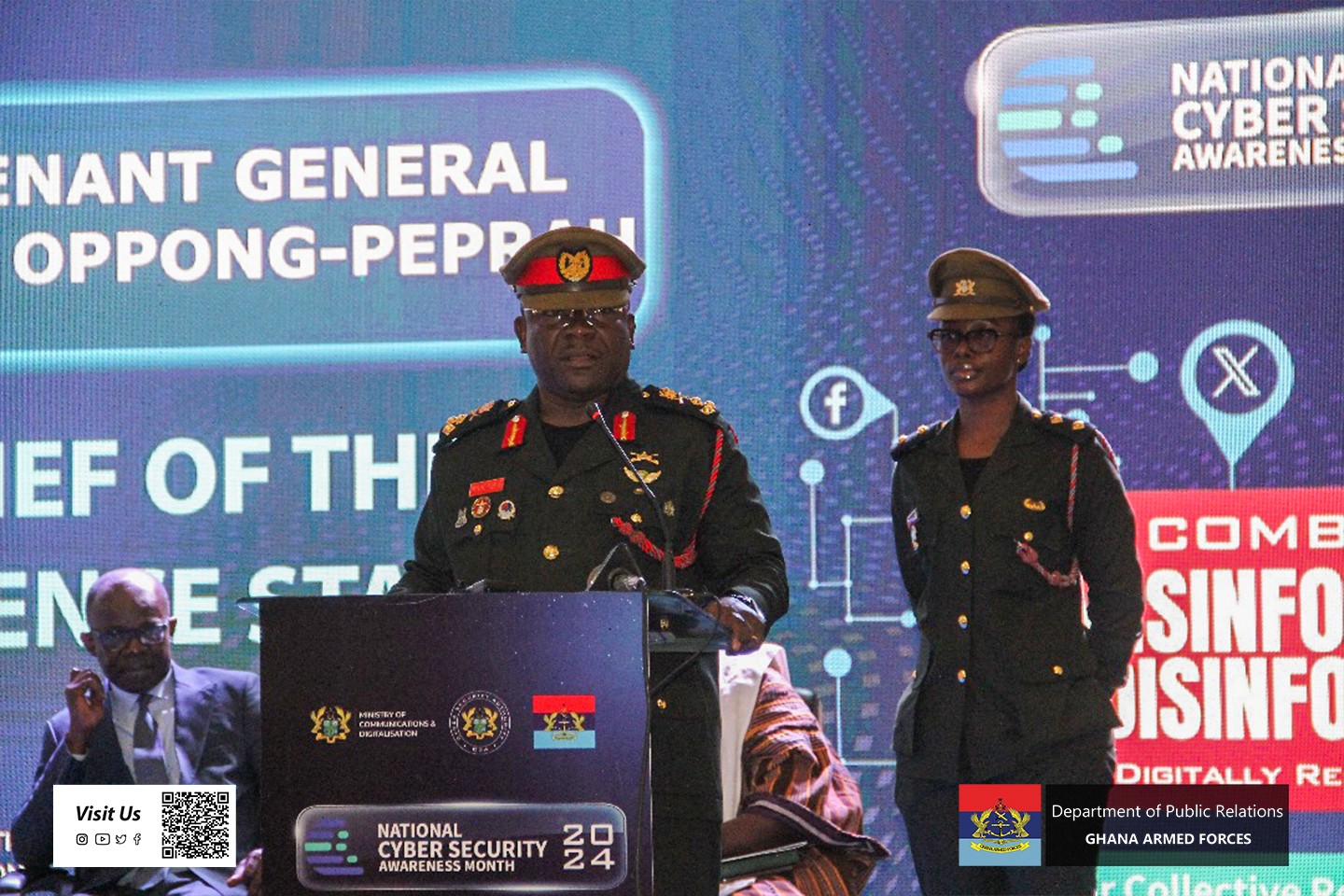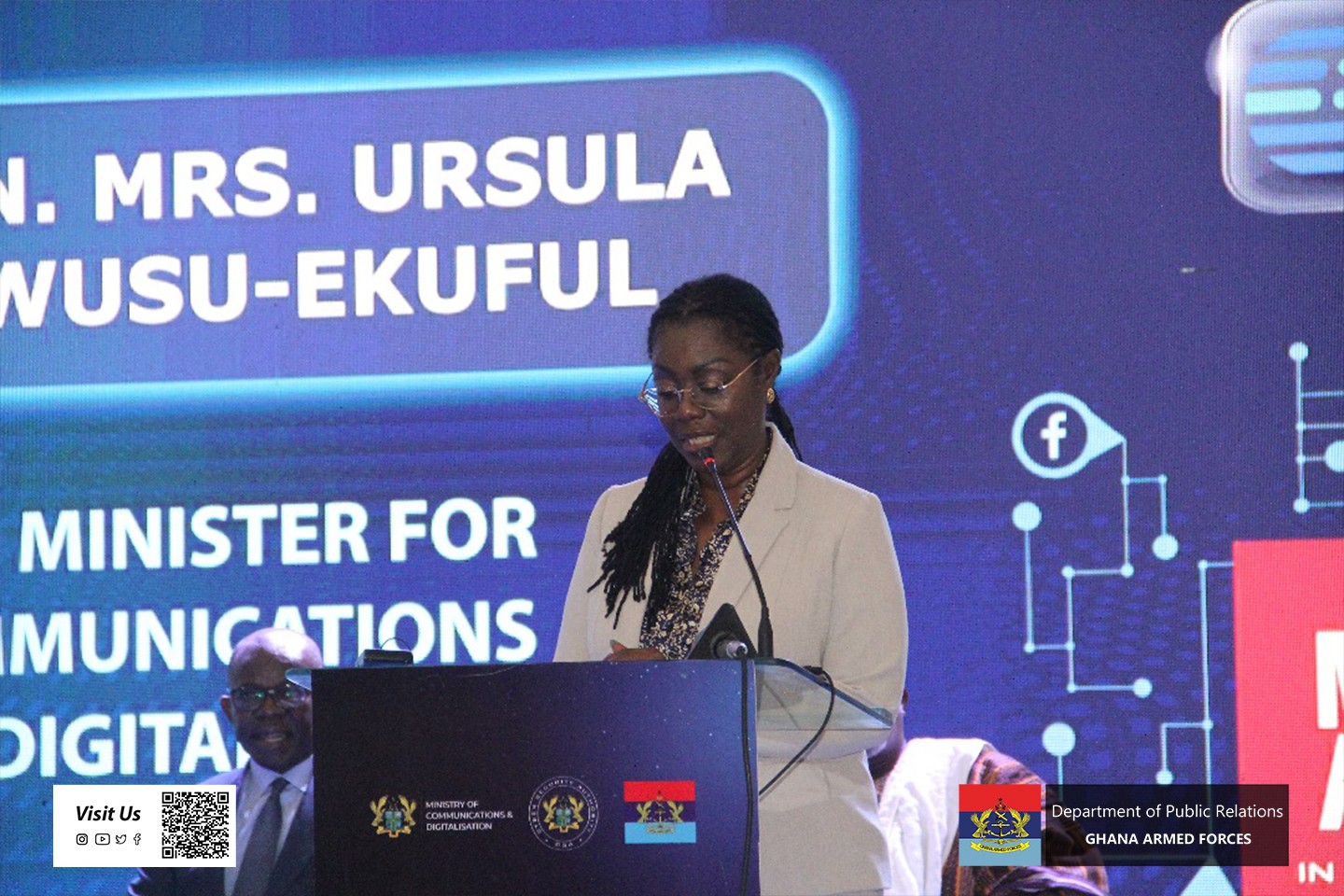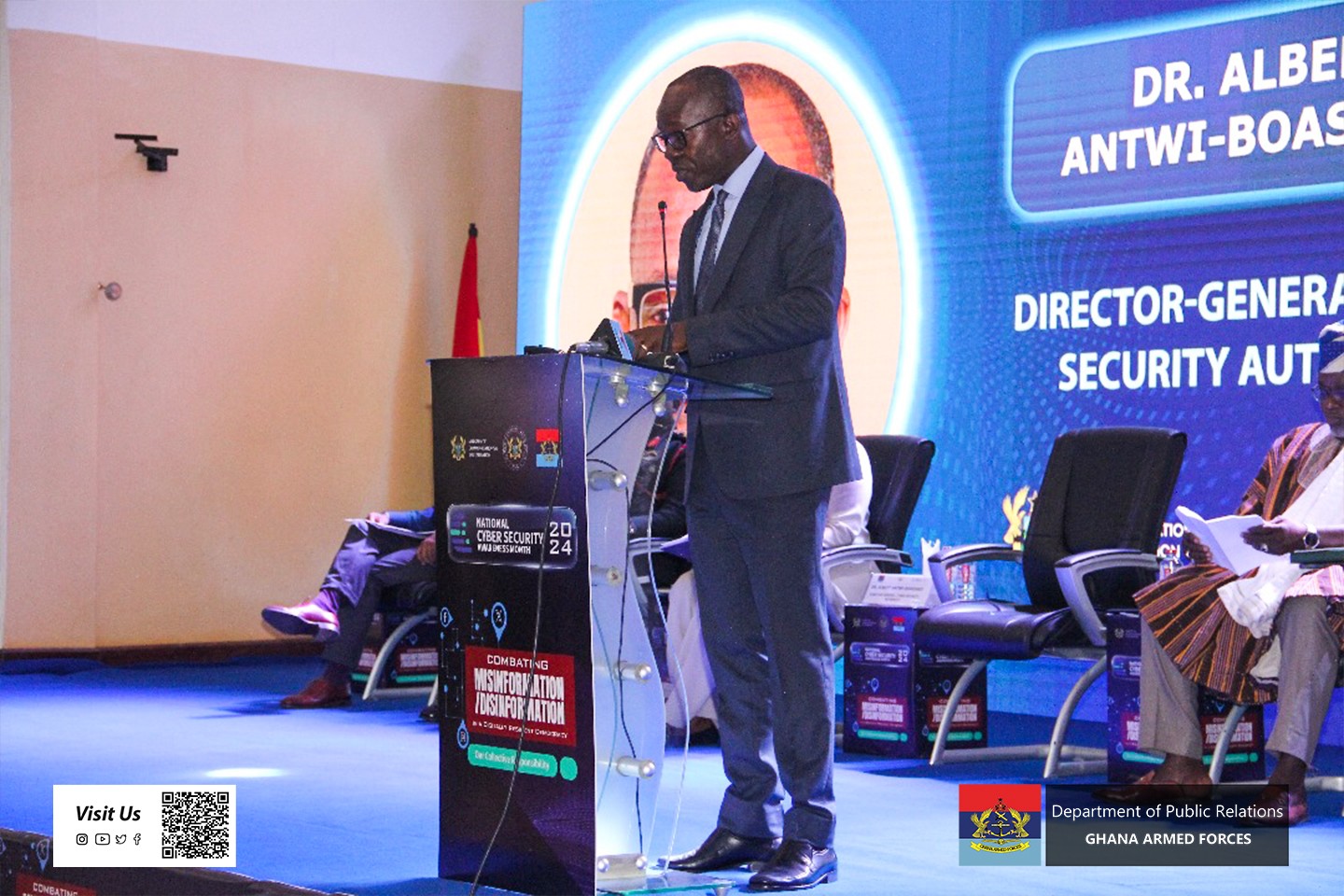As part of efforts to curb cybercrimes, the Ghana Armed Forces, Cyber Security Authority and Ministry of Communication and Digitization have launched the National Cybersecurity Policy and Strategy Document at the Burma Hall, Burma Camp, on Monday 1 October 2024.

The launch, which formed part of events lined up for Cybersecurity Awareness Month, aimed at addressing misinformation and disinformation in a digitally resilient democracy. It would provide clear strategic strategic objectives and initiatives with their corresponding descriptions, timelines and relevant stakeholders required to implement the strategic imperatives for a secure and resilient digital Ghana.
In his opening remarks, the Chief of the Defence Staff (CDS), Lieutenant General Thomas Oppong-Peprah, praised the Cyber Security Authority and the Ministry of Communication and Digitization for selecting the Ghana Armed Forces (GAF) to host the event.
 He reaffirmed GAF’s commitment to enhancing engagement and digitally protecting its infrastructure, while urging the media and public to be cautious in their digital reporting. The CDS further highlighted GAF’s preparedness to detect, prevent, and mitigate cyber threats before, during, and after the December elections.
He reaffirmed GAF’s commitment to enhancing engagement and digitally protecting its infrastructure, while urging the media and public to be cautious in their digital reporting. The CDS further highlighted GAF’s preparedness to detect, prevent, and mitigate cyber threats before, during, and after the December elections.
He advised the media to be circumspect in their reportage to avoid creating fear and panic during the general elections, and urged them to seek clarification from the GAF Department of Public Relations on issues involving soldiers before making such issues public.
 The Member of Parliament for Ablekuma West and Minister for Communication and Digitization, Hon Mrs Ursula Owusu-Ekuful, stressed the need for multistakeholder efforts to combat election-related misinformation, exchange best practices, and promote information sharing across industries. She noted that cybersecurity awareness has strengthened government institutions and civil society organisations’ ability to monitor, analyse, and counter misinformation and disinformation campaigns.
The Member of Parliament for Ablekuma West and Minister for Communication and Digitization, Hon Mrs Ursula Owusu-Ekuful, stressed the need for multistakeholder efforts to combat election-related misinformation, exchange best practices, and promote information sharing across industries. She noted that cybersecurity awareness has strengthened government institutions and civil society organisations’ ability to monitor, analyse, and counter misinformation and disinformation campaigns.
In his address, Director-General of the Cyber Security Authority, Dr Albert Antwi-Bosiako, noted that Ghana has achieved a Tier 1 ranking in West Africa and the second-highest ranking in Africa in the International Telecommunication Union (ITU) Global Cybersecurity Index.

He emphasised the importance of upholding core values such as inclusivity, confidentiality, commitment, reliability, integrity, and professionalism.
Dr Antwi-Bosiako reiterated that cybersecurity was a shared responsibility, involving children, the public, business sectors, and government.
The European Union Ambassador to Ghana, Mr Irchad Razaaly, lauded Ghana and the GAF for their contributions to digitisation and cybersecurity. He added that the implementation of biometric registration has enhanced cyber technologies in elections and encouraged continuous education and training for journalists across the country.

 He reaffirmed GAF’s commitment to enhancing engagement and digitally protecting its infrastructure, while urging the media and public to be cautious in their digital reporting. The CDS further highlighted GAF’s preparedness to detect, prevent, and mitigate cyber threats before, during, and after the December elections.
He reaffirmed GAF’s commitment to enhancing engagement and digitally protecting its infrastructure, while urging the media and public to be cautious in their digital reporting. The CDS further highlighted GAF’s preparedness to detect, prevent, and mitigate cyber threats before, during, and after the December elections. The Member of Parliament for Ablekuma West and Minister for Communication and Digitization, Hon Mrs Ursula Owusu-Ekuful, stressed the need for multistakeholder efforts to combat election-related misinformation, exchange best practices, and promote information sharing across industries. She noted that cybersecurity awareness has strengthened government institutions and civil society organisations’ ability to monitor, analyse, and counter misinformation and disinformation campaigns.
The Member of Parliament for Ablekuma West and Minister for Communication and Digitization, Hon Mrs Ursula Owusu-Ekuful, stressed the need for multistakeholder efforts to combat election-related misinformation, exchange best practices, and promote information sharing across industries. She noted that cybersecurity awareness has strengthened government institutions and civil society organisations’ ability to monitor, analyse, and counter misinformation and disinformation campaigns.




















